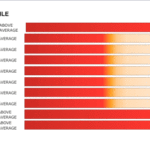Along time ago in the distant past, readers with long memories may recall we had a lawyer turned treasurer called Peter Costello, who urged us to have two children and then a third one for the nation. Perhaps our erstwhile treasurer had read an early draft on the research paper by Jean Wallace and Marisa Young from the University of Calgary that appears in the February 2008 edition of the Journal of Vocational Psychology.
The researchers looked at the relationship between parenthood and productivity amongst 670 lawyers from Alberta. They argue that there is a common perception that women in the legal workforce and particularly mothers expend less effort at work and are “generally less productive than men”. This is because, they argue, mothers have no energy left for work after meeting domestic duties. The opposite apparently holds for men. Fathers are summised to be more productive than their non-father male counterparts, as they feel a stronger urge to be a breadwinner.
In order to test these hypotheses, the authors compared the billable hours that male and female lawyers reported over a year. The lawyers were also asked to indicate the presence of children in their household and the approximate age of the children; the time spent on household responsibilities which they defined as cooking, cleaning, repairs, shopping, gardening, and banking. The lawyers also rated the degree of family support they received and time spent with the children on parenting duties.
In terms of billable hours, non-mothers billed 210 additional hours a year (13% more hours) than mothers. However the pattern was exactly the opposite for non-fathers – they billed 50 fewer hours (3.3% fewer hours) than their father counter-parts. In other words as the researchers expected, parenthood was an impairment to women’s productivity, but slightly enhanced men’s productivity. The most productive workers of all, were the non-mothers.
Mothers spent considerably more time in household tasks on workdays compared to non-mothers, but there was no difference between fathers and non-fathers in terms of household tasks. However, fathers supported their wife’s more on household tasks, than husbands of non-mothers.
The age of children at home also determined productivity of the mothers. Mothers with children under six billed some US$88,650 a year less than non mothers. This figure falls to US$63,900 less for mothers of children aged 6 – 12. Children over 12 in the family have no negative impact on their mother’s billable hours. Indeed mothers with teenage children worked considerably longer hours than women without children.
Interestingly the researchers also looked at family friendly policies in various firms and found that the main beneficiaries of such policies were fathers and not mothers. They concluded that there was “very little support for the benefits of family resources or the costs of working in a family-friendly firm for women’s productivity”. Indeed the main effect of family-friendly workplaces was to provide the fathers with more leisure time.
The findings appear to confirm some prejudices that the authors (at least) see in relation to women in the workforce – young children are an impediment to their productivity, but only in comparison to their exceptionally productive non-mother counterparts. This may suggest that the impact of motherhood on productivity could be exaggerated because the non-mothers may be working so hard to over-come the stereotype about female productivity, that in excelling, they make their colleagues who are mothers look less productive. It could be that women working in law firms are under greater pressure to perform, than women working in other workplaces. Perhaps if this study were repeated in less male-dominated workplaces, the productivity “cost” of motherhood may be far less, or perhaps even a productivity plus.
Finally, perhaps we need to give closer attention to the impact of family-friendly policies. Workplace policies that benefit one group over another need careful consideration. Is it really the aim of family friendly policies to provide most benefit to male employees?
Related Posts







